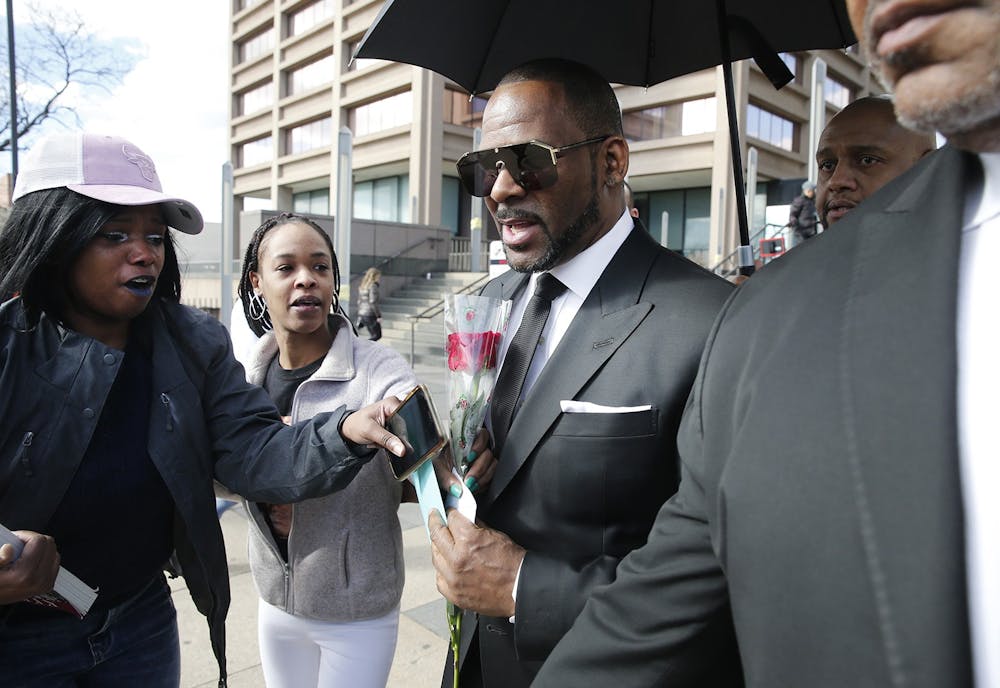Content Warning: This article has mentions of child abuse, child pornography and sex trafficking.
*
*
*
As if you needed another reason to stop listening to R. Kelly, on Sept. 14 the singer was found guilty of coercing minors into criminal sexual activity and producing videos of child sexual abuse.
This newest conviction, from a federal trial in Chicago, could add to his ongoing 30-year sentence from his conviction on racketeering and sex trafficking charges in New York City last year.
Robert Kelly’s legal battles trigger the question of whether we can separate the art from the artist, and I’m here to remind you that we can't. And we shouldn't.
The origins of this legal battle goes back to 2002 when Kelly was indicted on 21 counts of child pornography. The case wasn’t brought to a jury until 2008, during which a lack of cohesion from the victims resulted in him being found not guilty. Though he and some of his associates were accused of obstructing the investigation that led to that outcome, they were later acquitted of those charges.
The perverse escapades of R. Kelly have been talked around in popular culture for the past two decades. We all remember that 2005 episode of The Boondocks that mocked the first trial and emphasized his guilt. In 2019, his impassioned outburst during an interview with Gayle King became a meme. He was back in jail days later, invalidating his adamance about his innocence.
Despite the public acknowledgement of his probable guilt, his supporters have remained faithful. In the Boondocks episode, the defense attorney and Kelly win over the jury through his music, distracting them from the facts of the case. Outside the courtroom, fans welcomed Kelly and continued dancing.
Unfortunately, reality isn’t too far off.



